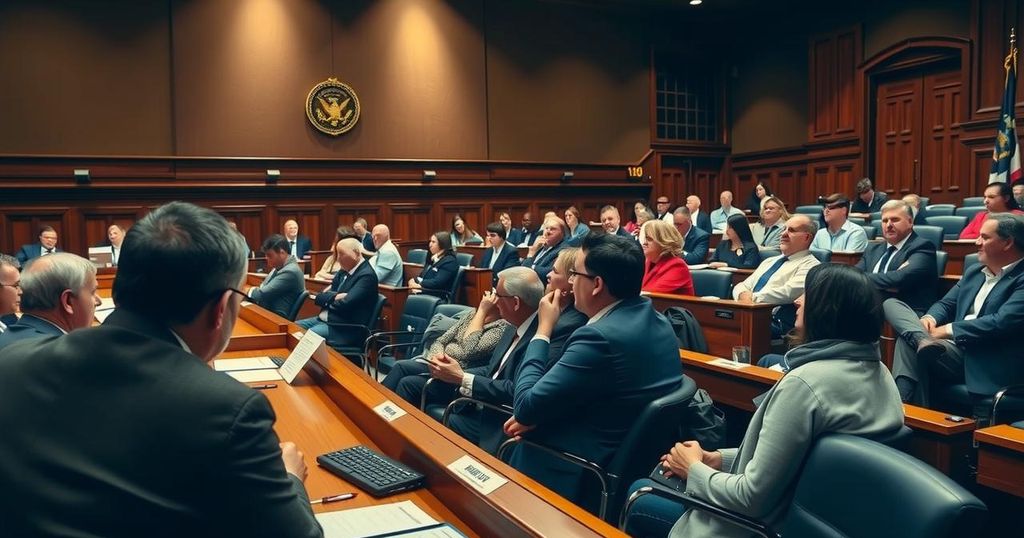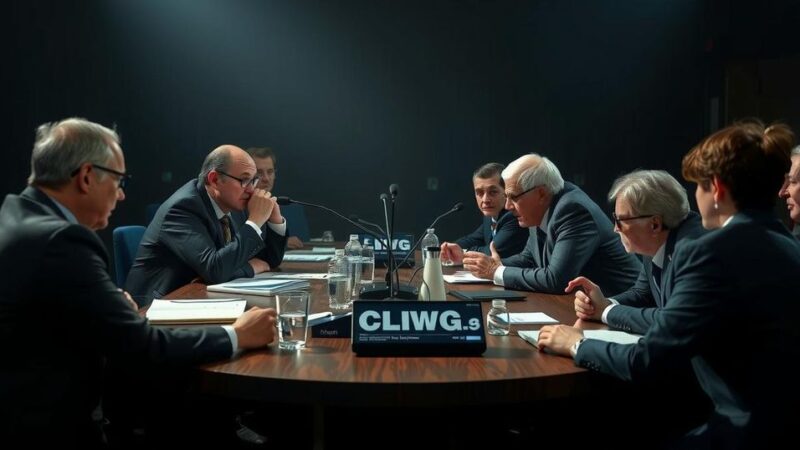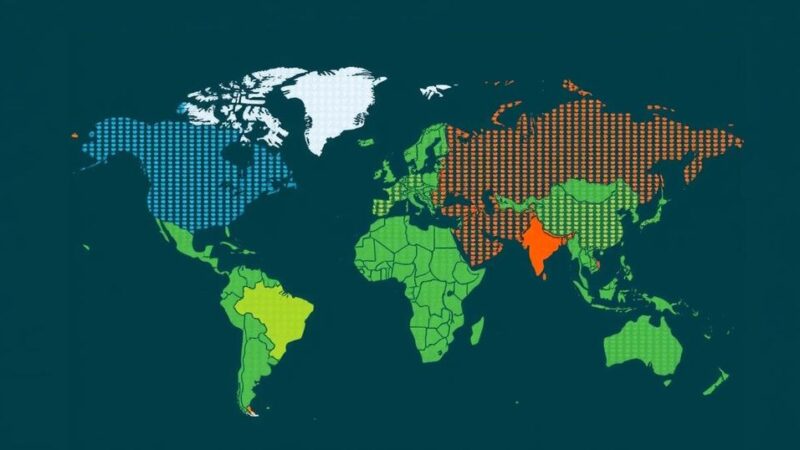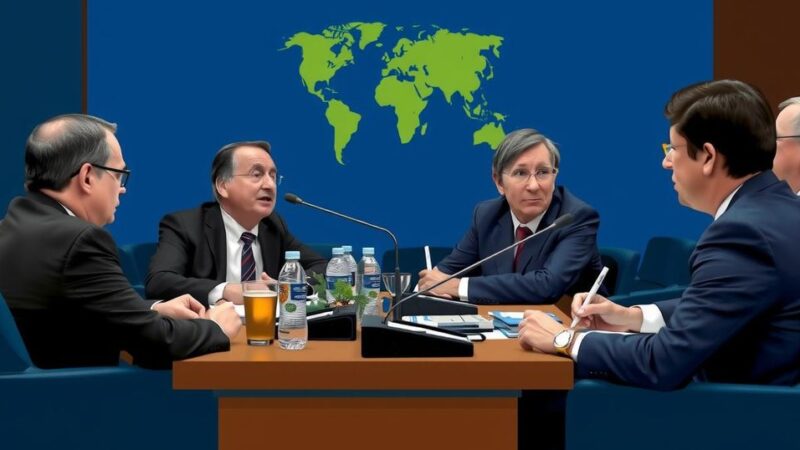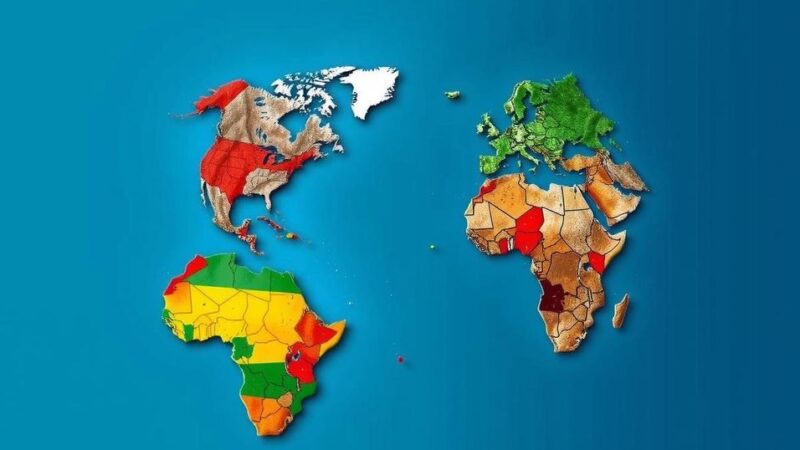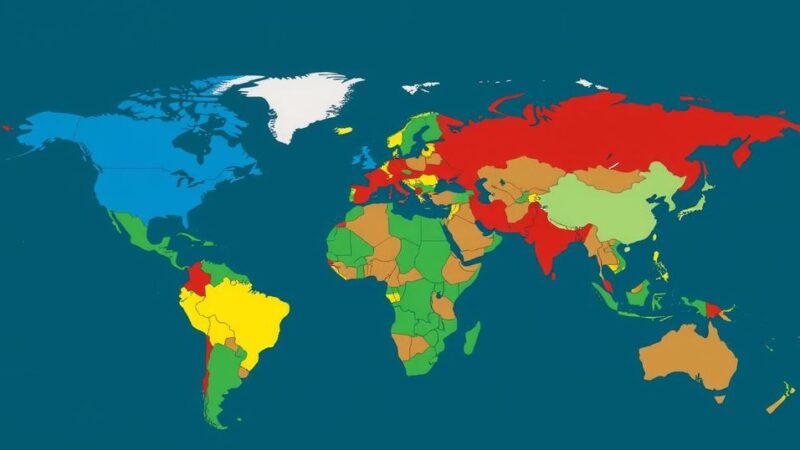A recent study shows a global trend in legal actions challenging climate policies focused on fairness, referred to as “just transition litigation.” This type of litigation emphasizes social justice for affected communities during the transition to a low-carbon economy, distinguishing it from conventional climate litigation, which seeks accountability for emissions. Notable cases in Chile, Norway, and Colombia illustrate the complexities of ensuring equity in climate actions. Policymakers are urged to adopt transparent and inclusive decision-making processes to address social justice issues.
Recent studies indicate an increasing trend of legal actions globally that challenge the fairness of climate policies and initiatives. These lawsuits, termed “just transition litigation,” focus on the equitable transition to a low-carbon economy while addressing the social implications on communities that may face disadvantages from such changes. Unlike traditional climate litigation, usually centered around holding governments or corporations accountable for emissions, just transition litigation emphasizes the need for social justice and the protection of vulnerable populations in the face of increasing climate actions. Various cases highlight this phenomenon. For instance, in Chile, coal workers brought a lawsuit against the government, alleging exclusion from discussions about the phase-out of coal plants. The Chilean Supreme Court ruled in favor of these workers, underscoring the importance of consulting affected communities as part of a just transition strategy. Similarly, the Sami Indigenous people in Norway successfully contested wind farm licenses due to violations of their cultural rights. In Colombia, Indigenous groups argue that forest conservation efforts infringe on their self-determination and cultural integrity. Just transition litigation reflects the pursuit of justice for those who might be adversely affected by the shift to a greener economy. The stakeholders in these cases typically include job holders from traditional industries, Indigenous populations, and marginalized groups who often lack representation in governmental decision-making processes. Their grievances go beyond local resistance to change; they highlight crucial insights related to equity and the social ramifications of climate policies. The legal cases considered range across a variety of frameworks, such as constitutional, human rights, and corporate accountability laws. Some focus on distributive justice, addressing resource allocation, while others concentrate on procedural justice related to inclusive decision-making, and recognition justice, which emphasizes respect for marginalized voices. The increasing emergence of such litigation signifies an acknowledgment of the costs associated with climate action for certain communities. Policymakers are thus called upon to implement inclusive and equitable processes when negotiating climate policies. Ensuring fair treatment in climate action not only safeguards vulnerable groups but also encourages widespread public support for these essential transitions to sustainable practices.
The rise of “just transition litigation” represents an evolving landscape in the realm of climate action, wherein individuals and communities use judicial processes to address grievances about injustices arising from climate policies. This shift highlights a growing awareness that while initiatives to reduce greenhouse gas emissions are critical, they must be conducted with an acute sense of social equity. The reported cases serve as a basis for broader discussions regarding the implications these policies have for various stakeholders, particularly those traditionally marginalized in economic transitions. Through this lens, the essential focus is on balancing environmental sustainability with social justice, ensuring that the transition to a greener economy does not exacerbate existing inequalities.
The study of just transition litigation reveals a critical intersection between environmental policies and social justice. As more individuals and communities seek legal recourse to voice their concerns, it is imperative that policymakers prioritize inclusive practices that reflect the needs of vulnerable populations. Addressing the fairness of climate initiatives is vital for fostering public support and ensuring that the transition towards a sustainable economy is not only effective but also equitable.
Original Source: theconversation.com
